Who are America’s private militias?
Private militia groups are in the spotlight in the US after the self-styled Wolverine Watchmen were tied to an alleged plot to kidnap Michigan’s governor.
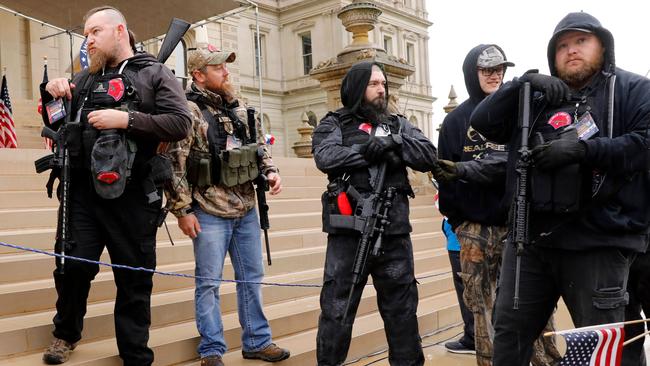
Seven of the 13 men charged last week in the plot to kidnap Michigan’s governor were part of a self-styled militia known as the “Wolverine Watchmen,” prosecutors say.
Concerns about such groups from US law-enforcement officials have been mounting, particularly after protesters armed with AR-15 style rifles showed up at Michigan’s state capital earlier this year, calling for Governor Gretchen Whitmer to reopen businesses barred from operating during the coronavirus pandemic.
Law-enforcement officials and researchers have also expressed concerns that private militias will turn up at polling sites during the November 3 US presidential election.
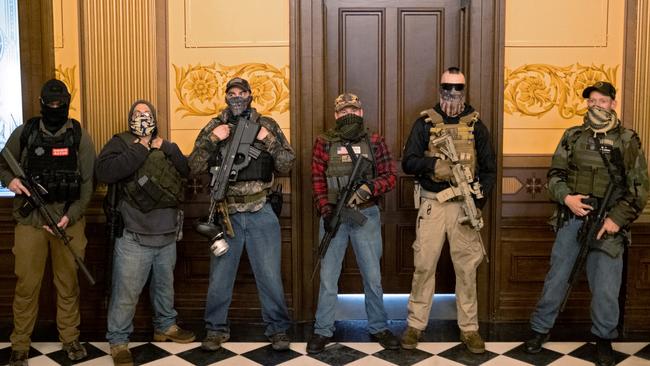
What is a militia?
Strictly defined, militias are groups of people supported by the government who can be mobilised to supplement traditional armed services.
“The US constitution and state laws use the term ‘militia’ to refer to all able-bodied residents between certain ages who may be called forth by the government when there is a specific need,” according to the Georgetown University Law Centre’s website.
Self-described militias encompassing private individuals, however, operate without government authority. The aims of some of the groups can include overthrowing the government and taking the place of law enforcement. Some have responded to events heavily armed, operating in military-style formations, and claimed they have authority to engage in state-approved functions like protecting property.
Many groups are operating against state laws barring paramilitary training, among other things, law-enforcement experts say.
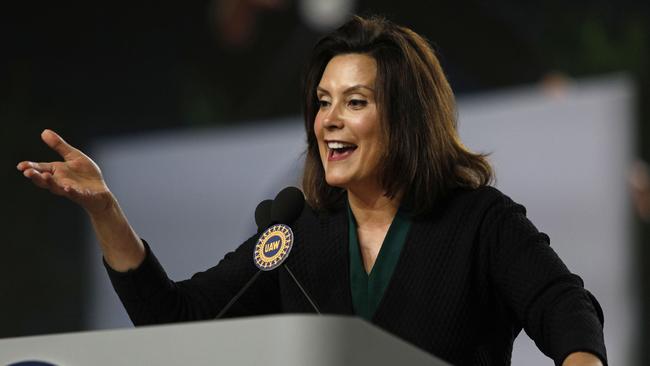
Do private militias share political beliefs?
Members of the “militia movement” often embrace extreme right-wing views, researchers say. They frequently view government and its leaders as oppressive and acting against the will of the people. They generally favour expansive gun rights and often hold white supremacist views, say those who study them.
The white power and militia movements overlap historically, said Kathleen Belew, a historian at the University of Chicago and author of “Bring the War Home: The White Power Movement and Paramilitary America.” “Not everybody in militias is a white power activist but many, many white power activists are in the militias from the 1990s forward,” she said.
The militia movement also includes overlapping ideologies. Ms Belew said she considered another right-wing extremist movement — the boogaloo, who call for a civil war — part of the militia movement.
The movement, like other aspects of the far right, also has its quirks, researchers said. For example, sometimes people of colour participate in militia-style groups.
US President Donald Trump said a far-right group should “stand back and stand by” at the opening presidential debate recently. Some people who hold far-right ideologies, including self-styled militias, viewed that comment as a call to action, several extremism researchers said. Many adherents of the broader militia movement strongly support the president, researchers said.
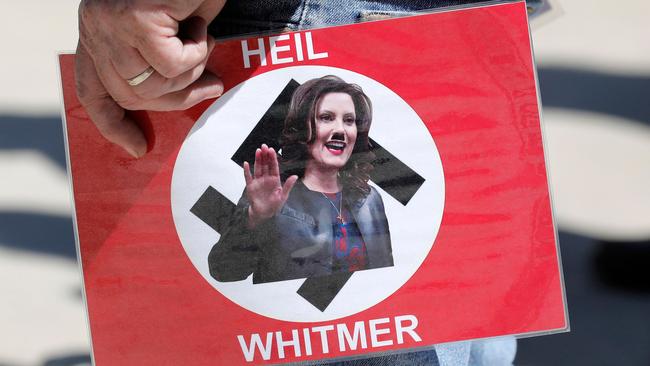
Is private-militia activity legal?
Generally speaking, no.
On the one hand, it isn’t illegal to create a group based upon shared political beliefs and call it a militia.
But all 50 states “prohibit private, unauthorised militias and military units from engaging in activities reserved for the state militia, including law enforcement activities”, according to a fact sheet published by the Institute for Constitutional Advocacy and Protection at Georgetown University Law Centre.
Some states, including Michigan, also ban “paramilitary activity during or in furtherance of a civil disorder,” according to the Georgetown centre.
“In the United States, it is not illegal to be a member of a group or movement which has extreme views,” said Tom O’Connor, a retired FBI special agent who investigated domestic terrorism cases. “It is only when those views are taken to the level of serious criminal violence that the act itself becomes illegal.”
In his 23 years working on domestic terrorism cases at the FBI, Mr O’Connor said he “had never seen charges brought against a group for calling themselves a militia.”
Are laws against private militias enforced?
Rarely.
Prosecutors are often unaware the laws are on the books, legal experts said. Such laws “are not the bread-and-butter criminal laws that they are used to enforcing,” said Mary McCord, legal director of the Georgetown centre.
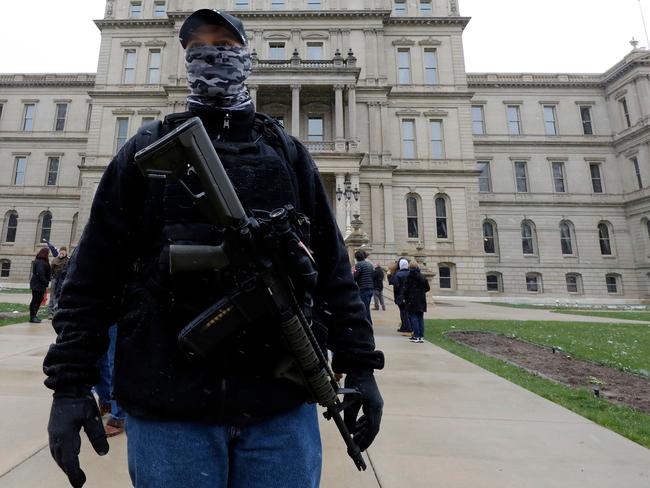
In addition, “the required legal thresholds are often difficult to meet because they generally require proof that the suspect activities were motivated by an additional specific purpose to foment violence or civil disorder,” said Brian Levin, a former New York City police officer. Mr Levin now heads the Centre for the Study of Hate and Extremism at the California State University, San Bernardino.
Cases against private militia before they actually carry out a plot have been tough to win.
In 2010, nine members of a Michigan militia group known as the Hutaree were charged with conspiring to kill a law-enforcement officer and to then launch a larger attack at their target’s funeral in a bid to start a war with the government. They were charged with sedition, or a plot to overthrow the government, and weapons charges.
A judge eventually threw out the bulk of the charges, saying that the case was built largely on circumstantial evidence and didn’t show that the group had agreed to actively oppose the government.
Last week, six men were arrested and charged federally with conspiracy to kidnap Ms Whitmer. Seven other men known to be members or affiliates of the Wolverine Watchmen were charged under Michigan’s anti-terrorism act. Two founding members of that group face several counts, including threat of terrorism and gang membership, while the other five face multiple counts, including providing material support for terrorist acts.
“Sedition cases are very difficult to prove,” said Peter Henning, a former federal prosecutor and now a law professor at Wayne State University Law School. “Charging the defendants with kidnapping is a much easier road to go down.”
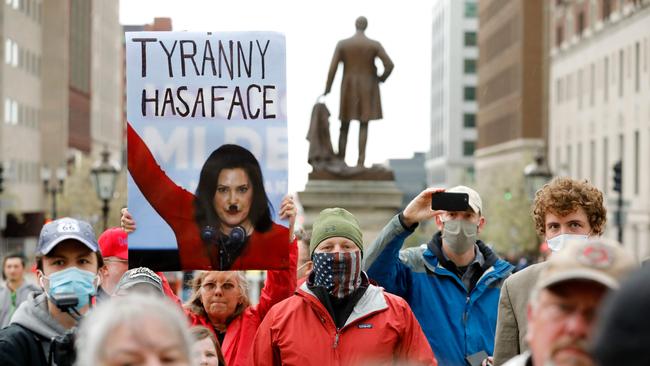
How is the militia movement organised?
Since the early 1980s, the movement has “followed a strategy of leaderless resistance”, according to Ms Belew.
Most private militias aren’t hierarchical like terrorist organisations with a clear command and control structure, said Bruce Hoffman, fellow for counter-terrorism and homeland security at the Council on Foreign Relations.
“We’re talking about something much more amorphous and fluid … a multiplicity of splinters, or cells in waiting,” said Mr Hoffman. “That is what is so worrisome about Michigan.”
How prevalent are private militias?
Several-hundred private-militia groups now exist around the US, and they have proliferated in recent years, extremism researchers say.
The militia movement gained steam after the 2008 election of president Barack Obama and the financial crisis of the period, which energised right-wing fringes, according to the Anti-Defamation League.
The Three Percenters, a prominent wing of the militia movement, emerged in 2008 and supports the notion that “patriots” must protect Americans from government tyranny, according to the ADL.
Private militias also took part in the 2017 far-right rally in Charlottesville, Virginia, when an avowed neo-Nazi killed one woman and injured dozens of others.
Michigan in particular has been a hotbed of activity for decades, researchers said. Timothy McVeigh and Terry Nichols, who killed 168 people in the 1995 Oklahoma City bombing of a federal office building, had ties to a prominent self-described militia in the state.
The Wall Street Journal

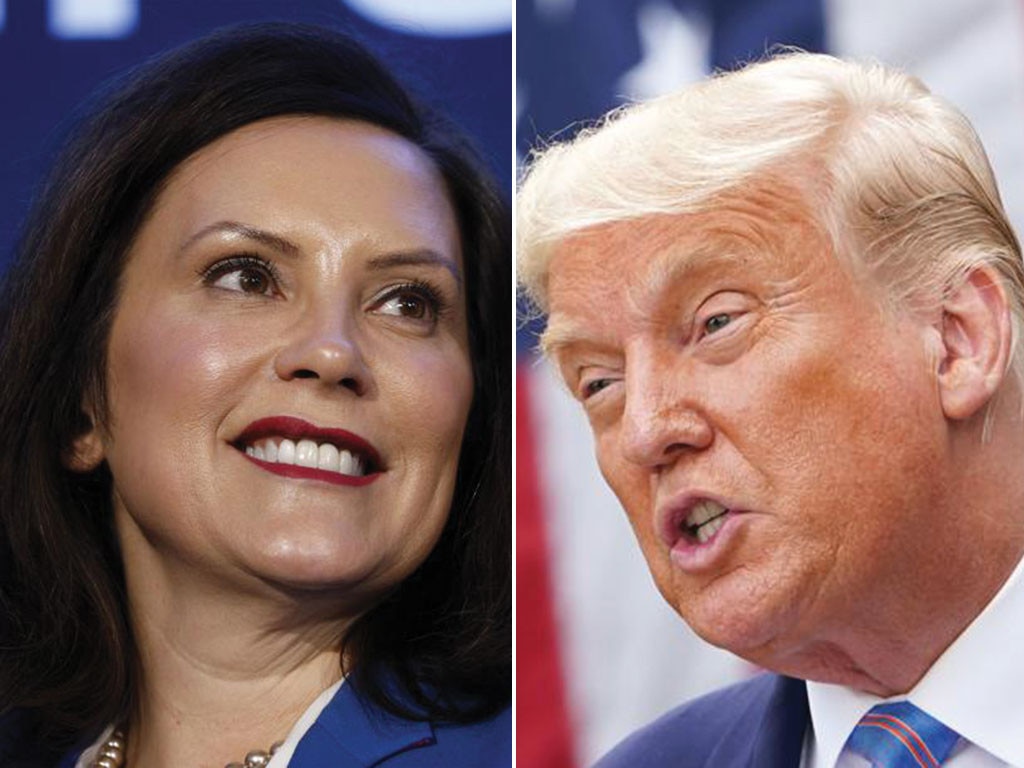

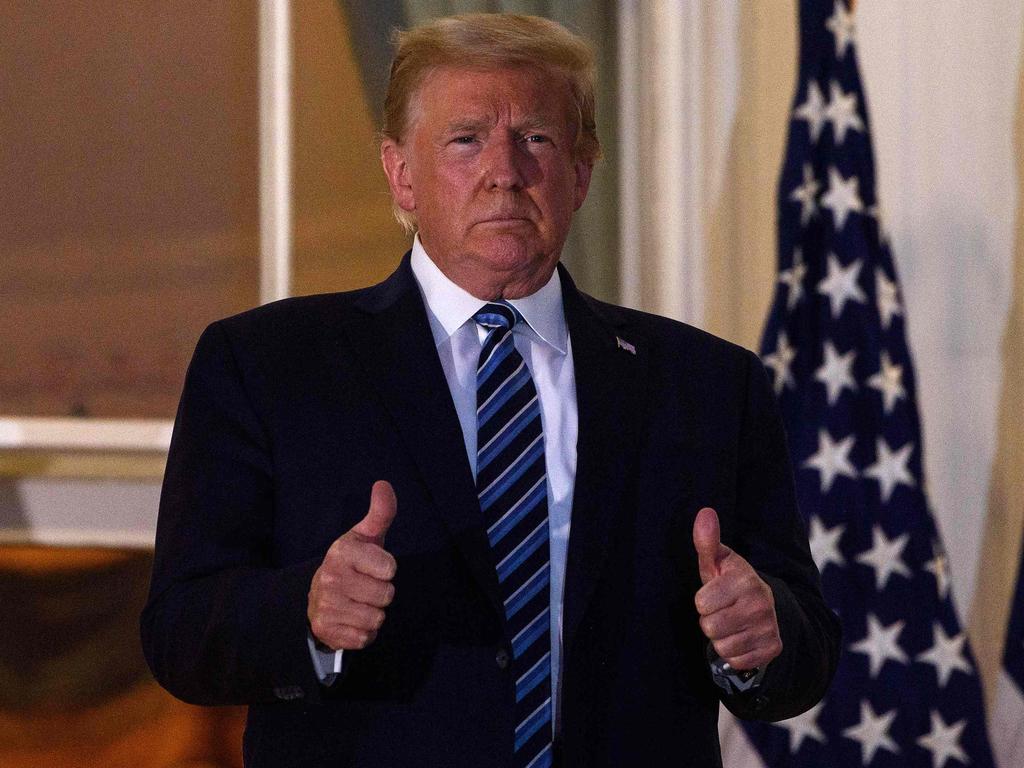



To join the conversation, please log in. Don't have an account? Register
Join the conversation, you are commenting as Logout